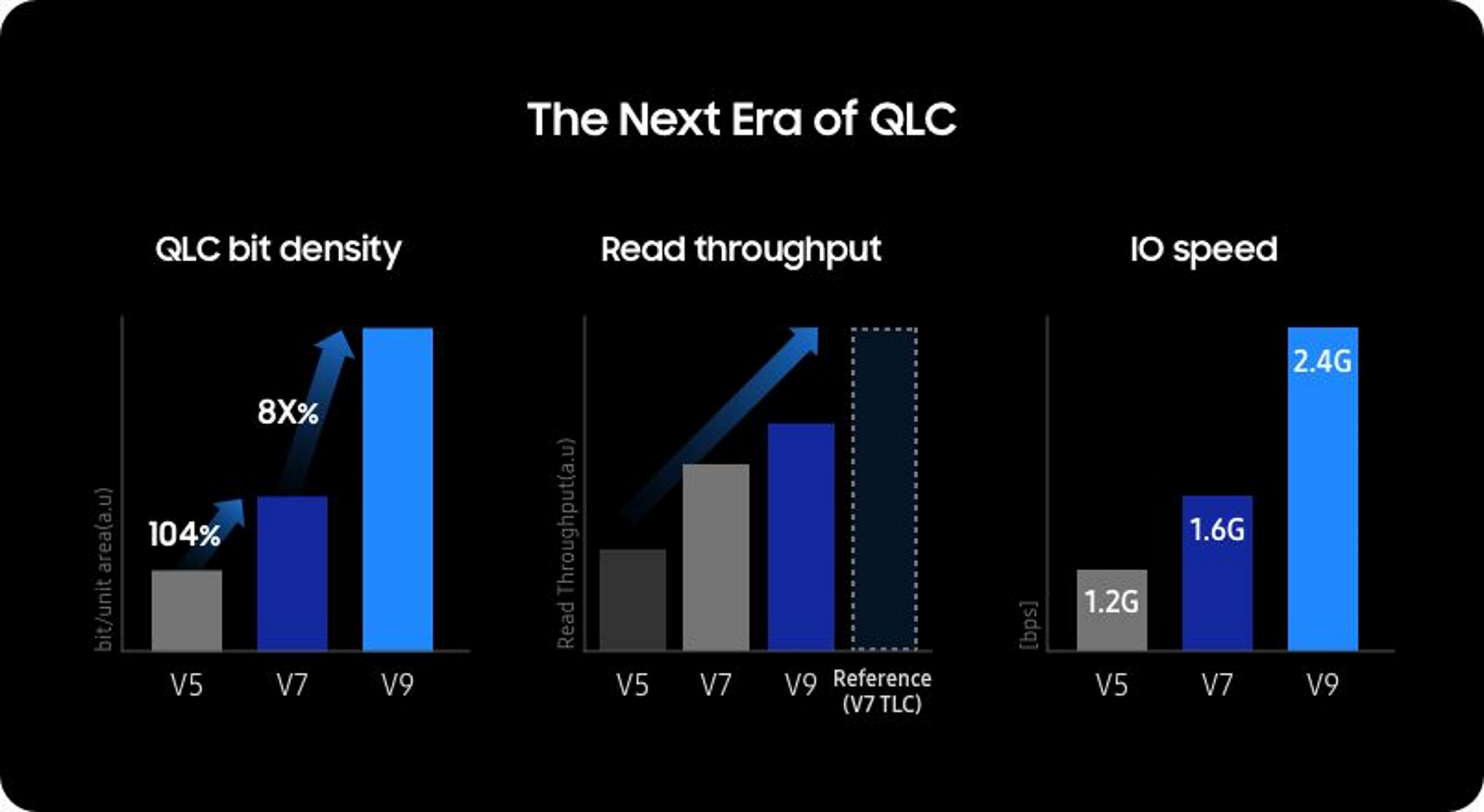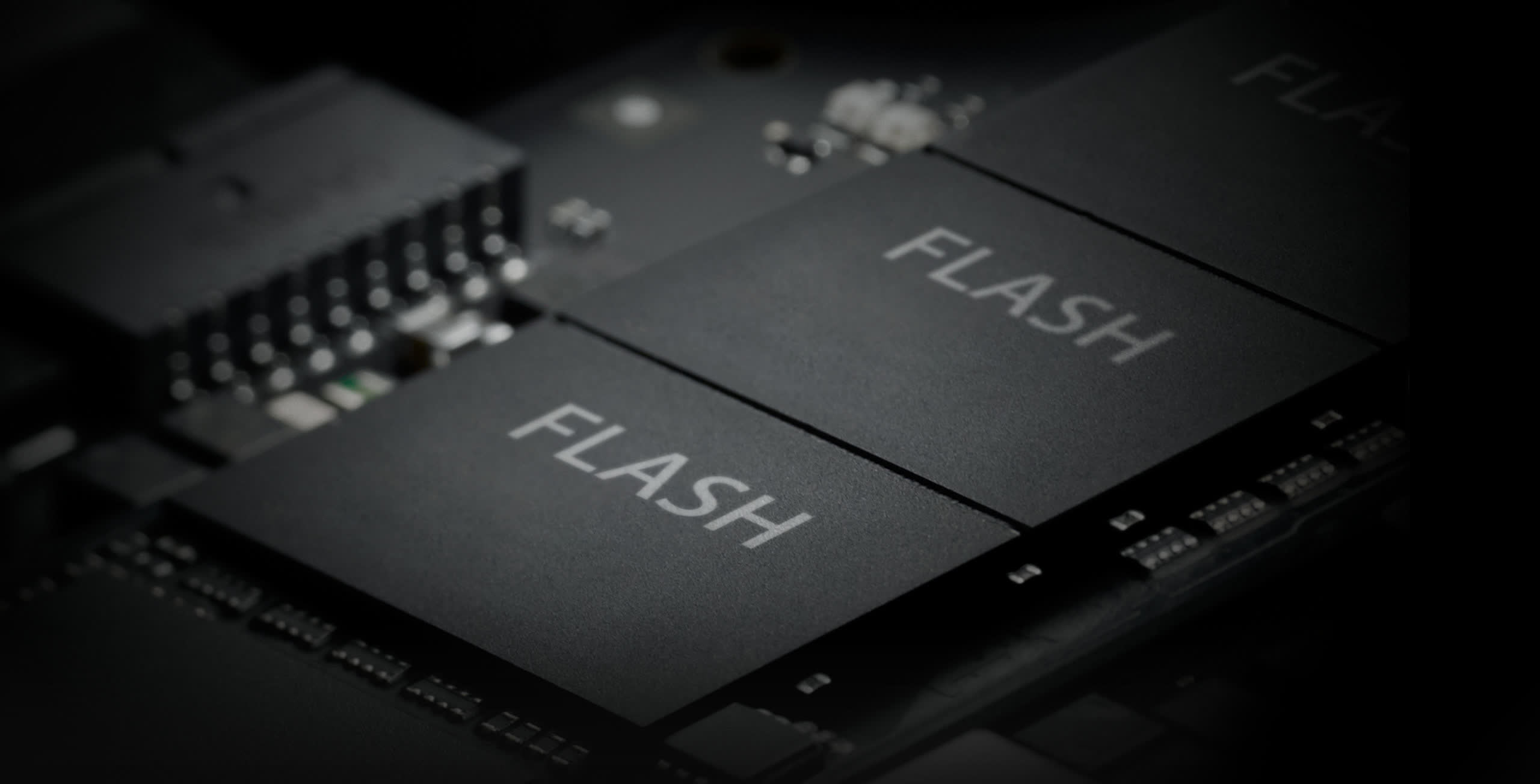Forward-looking: Multi-level memory cells (MLC) can store more than a single bit of digital information at the same time, and MLC chips are the cornerstone of modern solid-state drives. Samsung is about to introduce a new generation of SSDs based on quad-level memory cells (QLC), providing unprecedented areal density for storage applications.
The 2024 edition of IEEE's International Solid-State Circuits Conference (ISSCC) is coming to San Francisco between February 18-22, and Samsung is seemingly ready to steal the show with the introduction of its new memory solutions. The corporation has developed a new generation of QLC Flash chips, which will include 280 layers for a density of 28.5Gb per square millimeter.
Samsung's new QLC NAND V9 chips are claimed to be 50% denser than the competition (YMTC 232L), providing the highest areal density in the Flash memory industry (QLC or TLC) right now. QLC NAND V9 chips are also faster, with a maximum transfer rate of 3.2 Gbps compared to a 2.4 Gbps data rate provided by the previous generation.
Data transfer and performance are still an issue for QLC-based SSDs, Tom's Hardware remarks, but a 3.2 Gbps throughput should be more than enough to make the new chips a compelling solution for PCIe solid-state drives. Thanks to its QLC NAND V9 tech, Samsung could soon start selling 16TB M.2 SSDs.

Samsung has repeatedly stated that QLC NAND Flash chips are the future of solid-state storage, as TLC memory chips are quickly reaching the maximum raw capacity they can achieve. The higher, unprecedented surface density provided by the new QLC chips would bring lower costs to the manufacturing process, though speed still isn't on par with modern, high-end consumer NVMe SSDs sold by both Samsung and the competition.
Samsung's presentation during the upcoming ISSCC should at least confirm that the company is making significant progress in the development of the QLC technology. Current QLC-based SSDs employ large cache memories that can take up to 25 percent of the total storage capacity of the drive, easing the performance issue slightly. When the cache is full, write speeds can collapse and fall back to sub-par SATA levels (100-300 MBps).
Memory manufacturers currently competing with Samsung in the QLC storage market include Micron, which has developed a 232-layer QLC chip for a 19.5 Gb storage density per square millimeter. YMTC is also developing a record QLC memory solution, with 232 layers and a 20.62 Gb density per square millimeter.
